Brick apronceramic tiles, mosaics or skinned - the choice is wide, it all depends on your taste and on what style of room design you choose. The market provides a variety of materials to protect the walls of the kitchen from pollution, and create a unique look of your kitchen.
If it is not possible to lay the apron with artificial stone, brick or natural mosaic, you can use fiberboard with a film applied to them, on which anything can be displayed.
In your kitchen, an apron may appear under a brick, under a tree, under an old plaster, and even under the pages of a photo album. But natural materials, of course, are preferable.
The brick is resistant to temperature changes, is not afraid of mechanical damage, it is easy to take care of it, and it will retain its attractive appearance for many years, acquiring a touch of noble antiquity over time.
When choosing an apron made of brick as a decorative element for the kitchen, pay attention to the texture of its surface: it should not be coarse-grained so as not to reduce space and not absorb fat and other impurities. These aprons are especially relevant in Provence styles, country, Scandinavian or in the loft style.
A good option is a brick apron made of ceramic tiles. Such tiles can have a glossy or matte surface, imitate masonry made of small bricks or brutal “large” ones.
Small bricks are suitable for the Mediterranean interior, and large bricks are suitable for the recently fashionable loft. A brick apron is quite difficult to lay out, but a tile that imitates brickwork is laid in the same way as any other, which does not cause any problems.

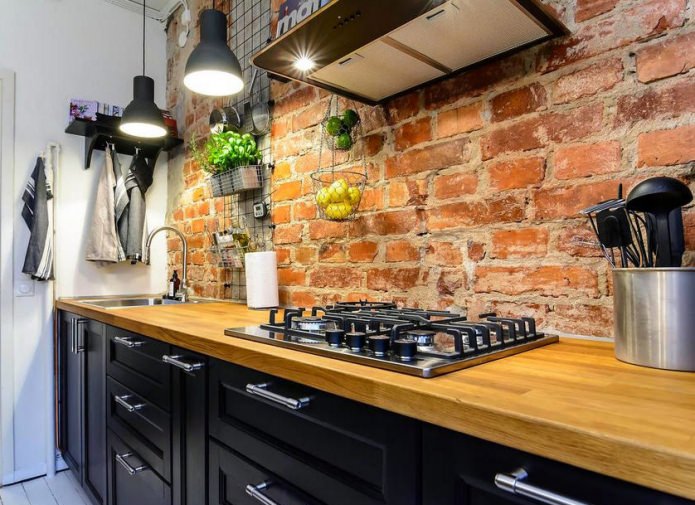
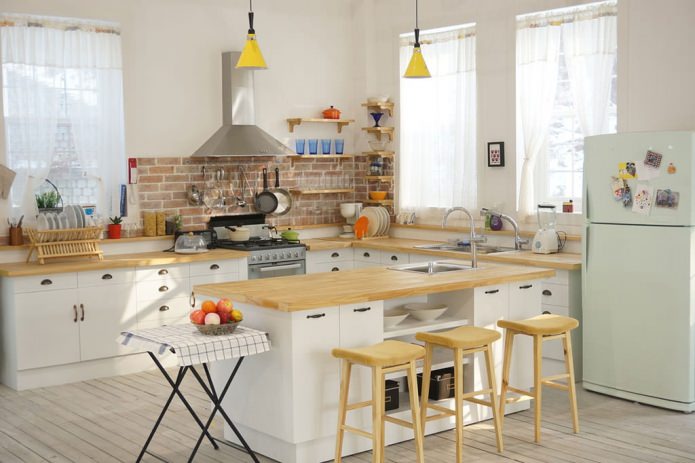
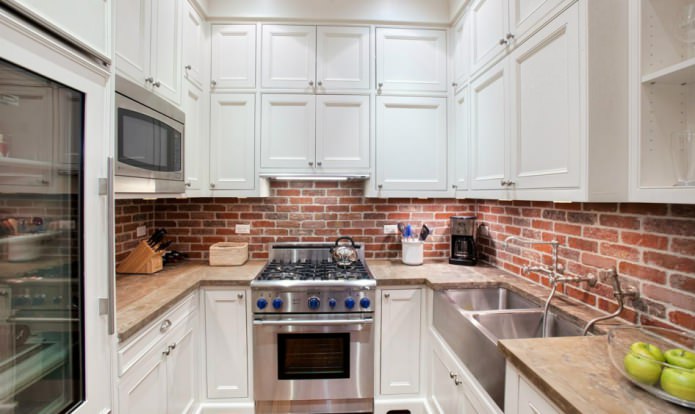
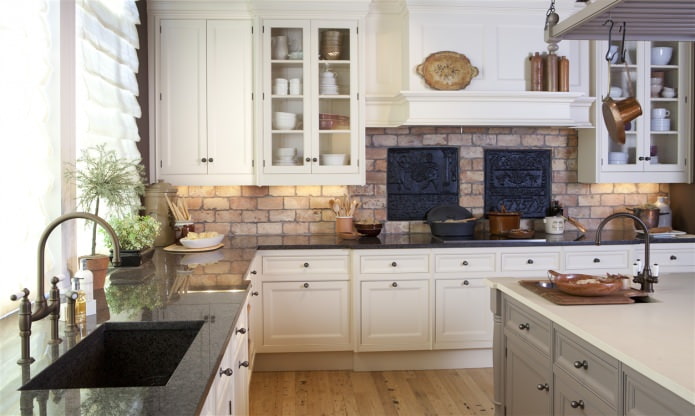
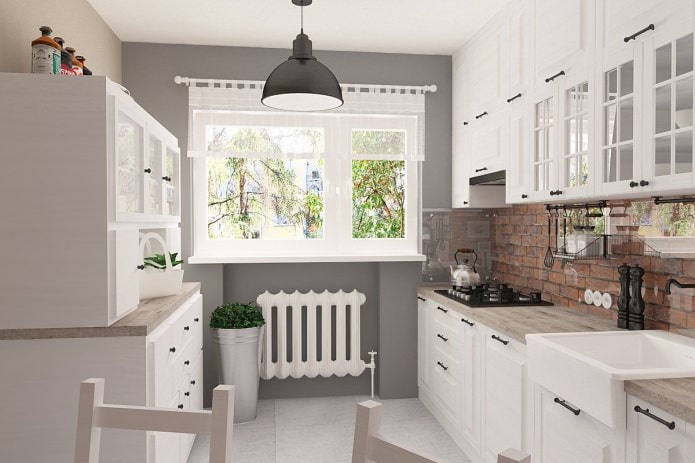
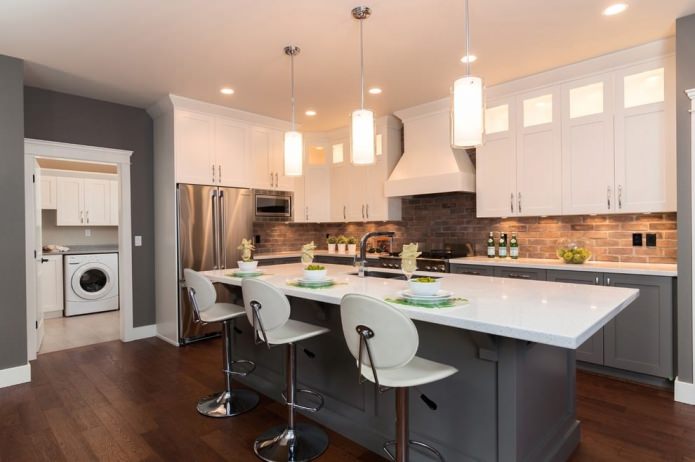
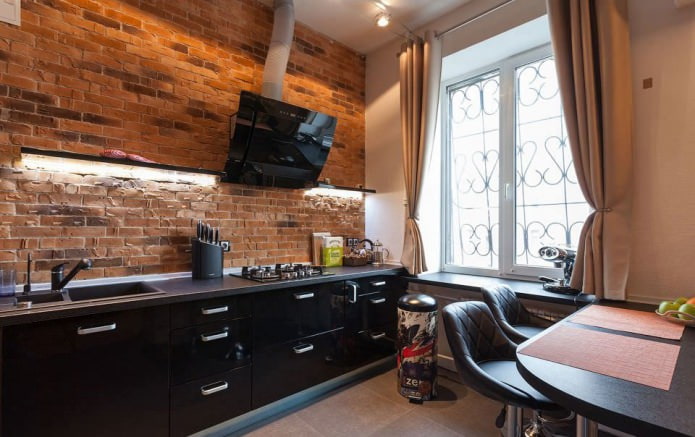
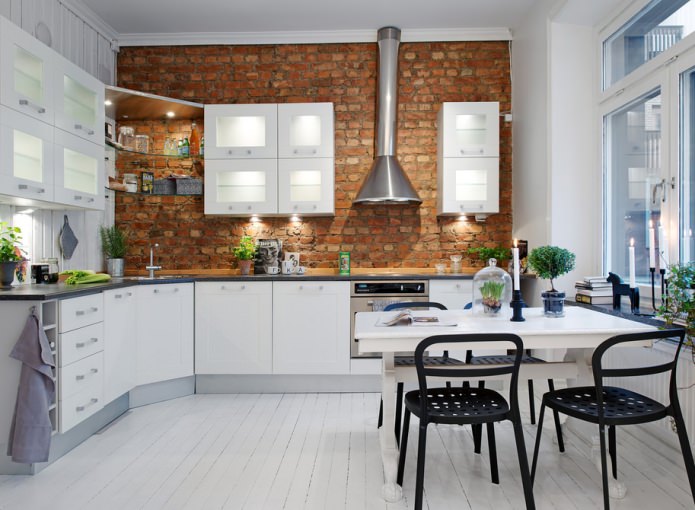
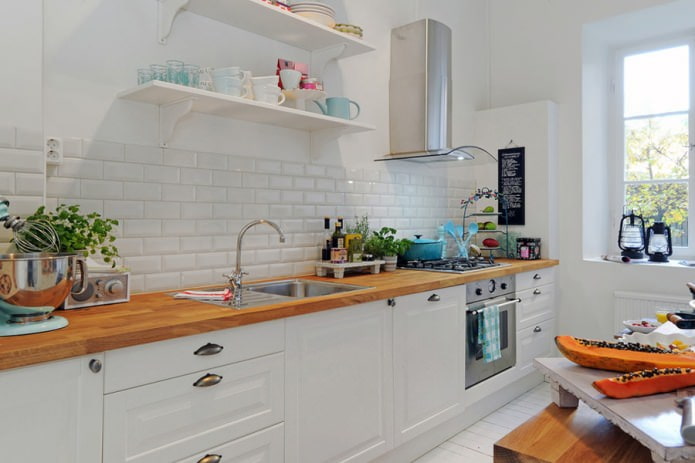
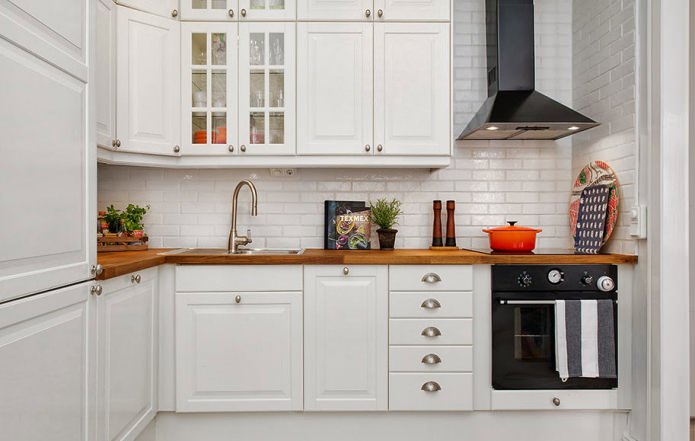
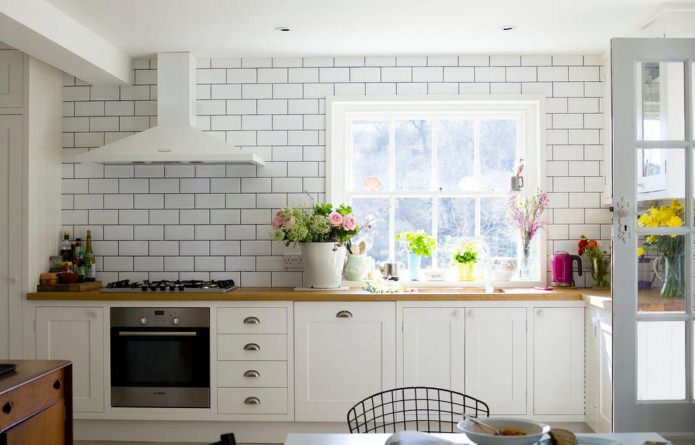
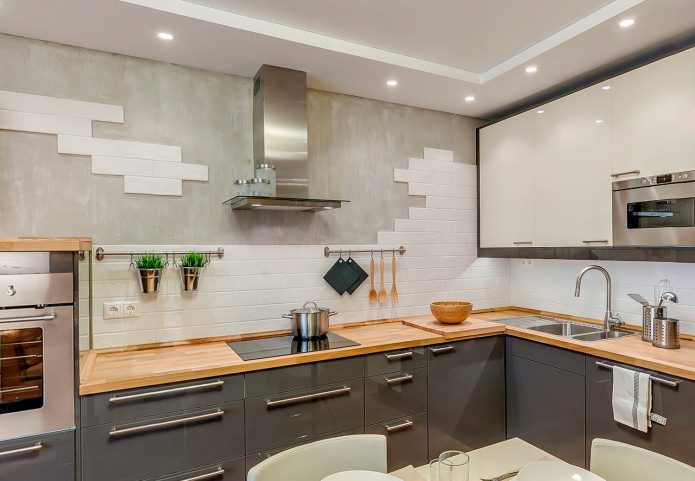
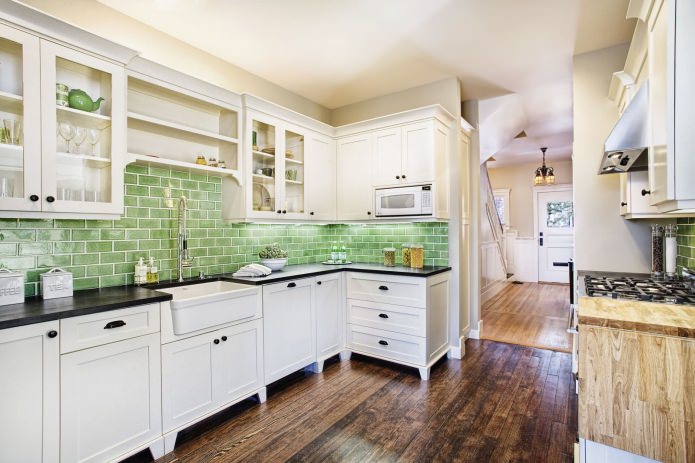
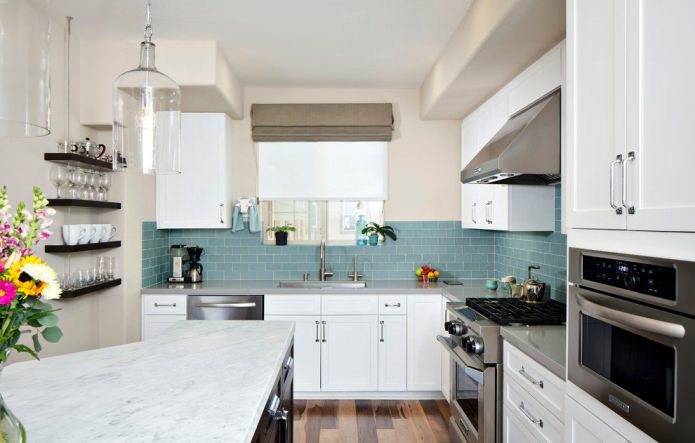
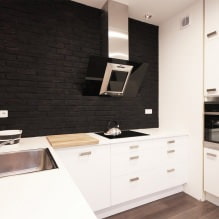
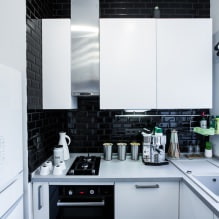
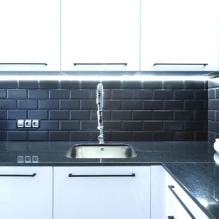


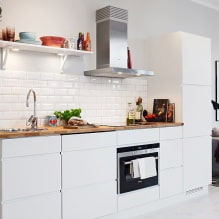
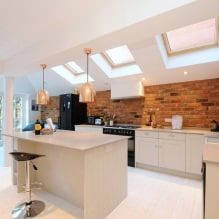
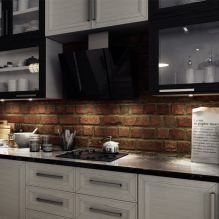


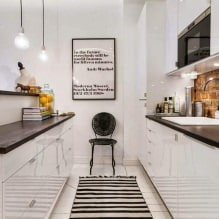

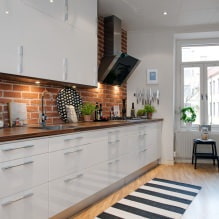


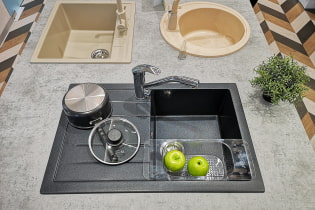 How to choose the color of the sink for the kitchen?
How to choose the color of the sink for the kitchen?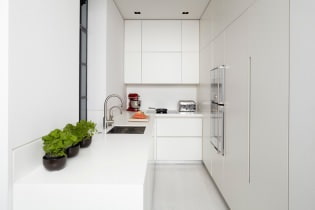 White kitchen: features of choice, combination, 70 photos in the interior
White kitchen: features of choice, combination, 70 photos in the interior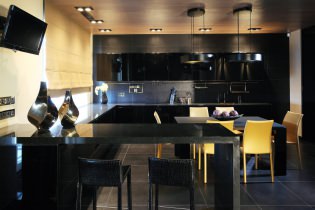 Black suite in the interior of the kitchen: design, choice of wallpaper, 90 photos
Black suite in the interior of the kitchen: design, choice of wallpaper, 90 photos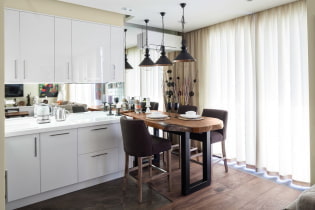 Modern design ideas for curtains for the kitchen - we make out the window stylish and practical
Modern design ideas for curtains for the kitchen - we make out the window stylish and practical Wallpaper design: 65 photos and ideas for a modern interior
Wallpaper design: 65 photos and ideas for a modern interior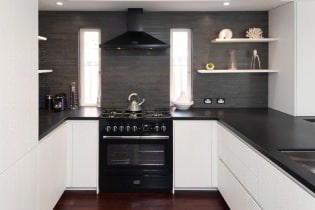 Design of a white kitchen with a black countertop: 80 best ideas, photos in the interior
Design of a white kitchen with a black countertop: 80 best ideas, photos in the interior